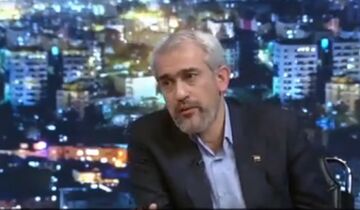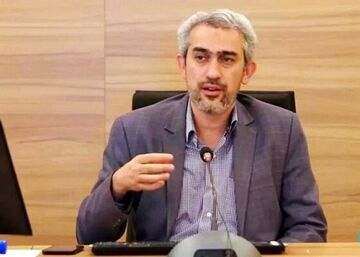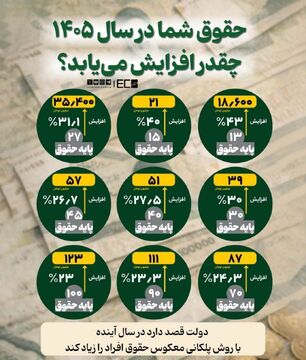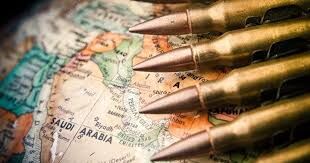Professor Hossein Askari, who teaches international business at the George Washington University, says China is very interested in Afghanistan’s mineral deposits, especially rare metals, lithium for batteries.
He adds “Although china has the largest deposits of such metals, at about 35% of world reserves, Afghanistan’s reserves would increase its monopoly to having a stranglehold on the West.”
He also says that “there are large deposits of copper, gold and gems. But as important, I agree that Afghanistan would provide China with a veritable highway to the Middle East with its oil and gas and the opportunity to give the U.S. a bloody nose on land and to withdraw from the global scene.”
Following is the text of the interview with Professor Hossein Askari.
Q: After the 9/11 attacks, the United States invaded Afghanistan to eliminate al-Qaeda and the Taliban. This did not happen. What is the reason?
A: Hubris, corruption and ignorance. Let me explain why these three words say it all. After 9/11, America, along with its allies and help from regional countries, was successful in conquering Afghanistan. The Taliban made an offer of conditional surrender. But America wanted unconditional surrender. Why didn’t America accept? Hubris pure and simple. What did America get? 20 years of war resulting in about 2,500 American casualties and over 20,000 seriously injured, $2 trillion dollars of treasure lost, defeat and a bloody nose. In the process, Afghanis suffered more—tens of thousands killed and hundreds of thousands injured. Bitter memories that will take decades to fade.
In these 20 years, America may have tried to build a democratic modern state. It failed miserably. Why? To begin with, it was an almost impossible task. It would take a few decades and with people who truly understood nation building and appreciated the history and the culture of Afghanistan. America had military men and “experts” who had book knowledge of the country and were in many cases corrupt. Let me explain the cancer of corruption that permeated every corner of the land. America poured money into the country. There was little accounting. Corruption was visible to the eye. American contractors were there to make money. They cared little for the waste and who took what they could. The Afghanis saw this and they jumped in with both feet. American companies and Americans made huge profits. Afghani officials built mansions in Kabul and abroad, stashed dollars in foreign bank accounts, while the average Afghani, especially those in the countryside were neglected but could see the corruption in plain sight. There was no loyalty to the government in Kabul and even the soldiers saw little reward for their sacrifice and would not in the end fight for a government that cared so little for them.
How could there be such a failure? Ignorance. When their offer of surrender was rejected, the Taliban retreated to the countryside and took jobs and melted into the towns and villages. They built relations while America came in, especially from the air, to bomb suspected terrorist targets. They killed some terrorists but in the process they killed thousands of civilians and made enemies. The Taliban cemented relations while the Americans made enemies for then and into the future.
So with the pullout, the Afghan army just collapsed in a matter of days and the Taliban took over without a fight.
America’s bloody nose will haunt it for years to come. Just look at Kabul. America has a $10 million bounty on the new Minister of the Interior who is in charge of security. A very senior minister, Abdul Ghani Baradar, was captured by the CIA and imprisoned in Pakistan for years. Some of the senior officials of the new government were imprisoned by the U.S. in Guantanamo Bay. And do you think these men have love or hate for the U.S. for years to come. The world can see the failure of a superpower in real time.
Q: While Biden's administration has been criticized as a democratic state for withdrawing the United States from Afghanistan, it was the Bush administration that invaded Afghanistan, and the Trump administration signed the Doha peace agreement with the Taliban. What was wrong with the Democrats and Republicans regarding Afghanistan?
A: Let me start by saying that the Republicans as well as the Democrats share in the blame. Hubris, corruption and ignorance are characteristics of both parties. But having said that, let me say a few words about the recent failure of both parties. The Trump Administration’s negotiations with the Taliban in Doha for the American pullout was a total disaster. The Americans just talked with the Taliban and excluded the Afghani government! It made no sense at all. Moreover, the conditions and the safeguards for the American pullout were almost non-existent. Trump for all intents and purposes recognized the Taliban as the new government and did not put in place an orderly pullout for its troops, U.S. citizens and residents, to say nothing for its NATO allies and Afghanis who it had promised safety in the U.S. Biden, on the other hand, was so anxious to get out that he did not renegotiate the terms of the pullout, to provide time to grant the necessary visas to Afghanis and to advise American to start pulling out. Most critical, Biden and his “brain trust” could not read the writing on the wall that the Afghan government and army would collapse in a matter of days. They can say what they want but this was obvious, maybe not in 11 days but definitely within one month.
Q: In security theories, it is stated that the emphasis on military security cannot lead to human development in societies. However, US security policy after World War II has focused on military security in order to export democracy to other countries. Afghanistan is a recent failed example of this policy. Is America's goal to export democracy to other countries based on liberal values, or should it be analyzed with realism school?
A: I totally agree that military security alone cannot lead to human development. A country needs effective institutions, which take decades to build. Moreover, I don’t subscribe to the notion that America always wants to build democratic states around the world. Just look at the countries that America supports around the world. Some of them are the most oppressive regimes. America says it wants democracy but it wants governments who support its agenda—influence, foreign bases, market for its exports, access to raw materials and opportunities for its companies and individuals to make money. So America’s interest abroad is not based on liberal values but short-term political, military and financial interests.
Q: Why did the United States decide to withdraw its troops from Afghanistan? It is argued that US military costs in Afghanistan was high and that continued presence in Afghanistan was not in the best interest of the country, and that it was necessary to withdraw from Afghanistan in areas where the United States had no vital interests in order to focus on controlling China. Do you agree with this argument?
A: The money was not the issue. In recent years, America was spending about $20 billion a year, which was an easily manageable amount. Casualties were also low as its role was mainly limited to the air. I think America was just tired. No victory in sight and yes, worries at home about China and Russia.
Q: China has already announced its readiness to invest in Afghanistan for its development. What is the geopolitical importance of Afghanistan for the expansion of the “One Belt-One Road” project? China is said to be able to connect to Iran and the Middle East through Afghanistan. What is your opinion?
A: I agree. I think China is very interested in Afghanistan’s mineral deposits, especially rare metals, lithium for batteries. Although china has the largest deposits of such metals, at about 35% of world reserves, Afghanistan’s reserves would increase its monopoly to having a stranglehold on the West. Also, there are large deposits of copper, gold and gems. But as important, I agree that Afghanistan would provide China with a veritable highway to the Middle East with its oil and gas and the opportunity to give the U.S. a bloody nose on land and to withdraw from the global scene.
Q: Which countries serve the interests of the Taliban in power and which countries' interests are endangered? Given that extremists from the Taliban military wing have occupied key positions in the interim government. For example, there are no Shiites in the cabinet, and Qari Fassihuddin, the Taliban army commander who has long been affiliated with the East Turkestan Islamic Movement and whom Beijing accuses of carrying out terrorist attacks in Xinjiang, is also in the interim cabinet.
A: I think it is too early to tell. The new government has to be installed and we have to wait and see its policies. But remember that Afghanistan is tribal to the core. So in the end, to be successful, the country must go beyond having a land just for the Pashtuns. It must in time include an important role also for some of the others, including the Tajiks, Hazaras and the Uzbeks. Regionally, I think Pakistan has the most to gain but it is a two-edged sword for Pakistan as the Taliban could also stoke unrest in Pakistan. I think that Qatar will gain no matter what. Turkey could gain some influence. But the outcome for China, Iran and Russia it is early days, depending on many possible outcomes such as their fanaticism for radical Sunni interpretations of Islam. But the Taliban realize that these three countries, especially China and Iran, are important for its survival as they can play a supporting role or stoke fires inside the country.
















نظر شما